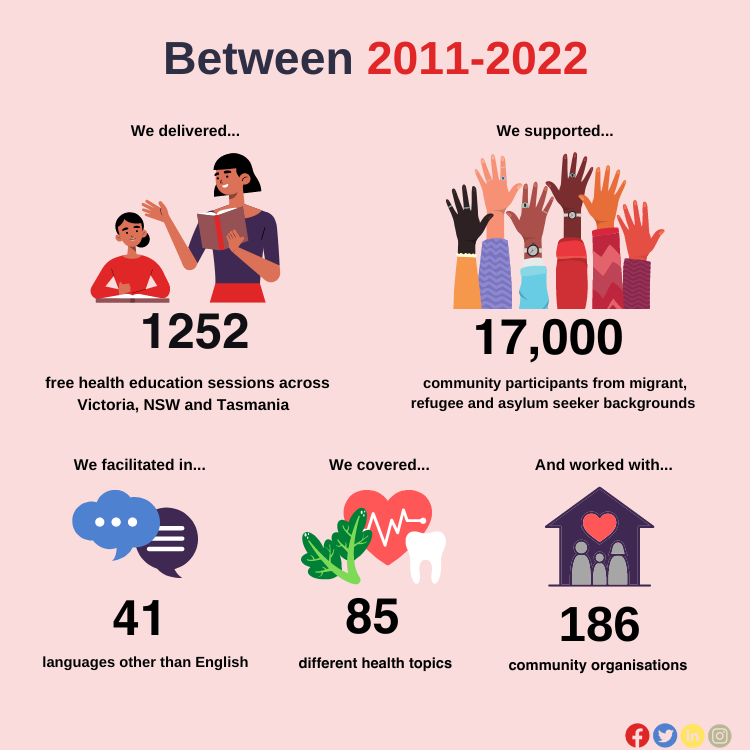Women's Health Forum
Thursday 8 September
While some exciting sessions were held during Women’s Health Week, the highlight for Water Well Project Health Educator, Tracy, was the Dandenong South Women’s Health Forum. Co-hosted by two local primary schools, The Water Well Project joined Wellsprings for Women and Monash Health for a day of positive health for women, along with lots of fun!
The Water Well Project’s health professional volunteers facilitated two sessions on Women’s Health, with a focus on Menstruation, and Breast and Cervical Cancer Screening. The first session comprised over 40 Burmese women, and the second session over 40 Afghan women. Stories were enthusiastically shared, questions flowed, and important information was communicated as we strengthened the health literacy of these women.
The Water Well Project also partnered with Jean Hailes for Women’s Health to provide show-bags for each participant. The show-bags included a BreastScreen Victoria bookmark, and a Women’s Health Screening Tool designed by The Water Well Project with the support of the Scanlon Foundation, to empower women to initiate preventative health actions with their GPs.
Following the sessions, participants shared a Zumba class, henna art, a petting farm, and lunch. It was a wonderful community event!
Case Study Diabetes Session
On 27 March, The Water Well Project facilitated a health education session with a group of older Indian women. The session comprised an interactive discussion about Diabetes. The women were delighted with the use of various props to improve their understanding. The volunteer healthcare professional facilitator used a lock-box and key to demonstrate the role of insulin (the key) in helping glucose (sugar) move from the blood into the body’s cells (lock-box). Many of the session participants knew that diabetes was about high blood sugar, but hadn’t really understood what that meant. They learned what happens in the body with diabetes and, thanks to the life size model of a body completed with the main organs and blood vessels, were able to visualise how diabetes affects different parts of the body.
The facilitator handed cards to two community representatives who helped lead the discussion about risk factors, symptoms and complications, with the facilitator asking pertinent questions to get the group thinking, and answering questions that arose. It was a fun way to learn and included lots of laughter and ‘ah-ha’ moments.
The session finished with Indian samosas and a chance to chat and ask further questions of the healthcare professional. She reflected, “As a healthcare professional, where else do you experience a group of 20 migrant women asking questions, sharing stories and learning together as a community. It’s so satisfying when you see the women suddenly understand what diabetes is and how it affects the body. What a unique opportunity to impact an entire community’s health for good.”
The community representative said, “Thank you for an amazing and informative session on Diabetes. It was really well presented, even I learnt a lot and will put it to good use. Overall, the feedback from the ladies was very positive.”



